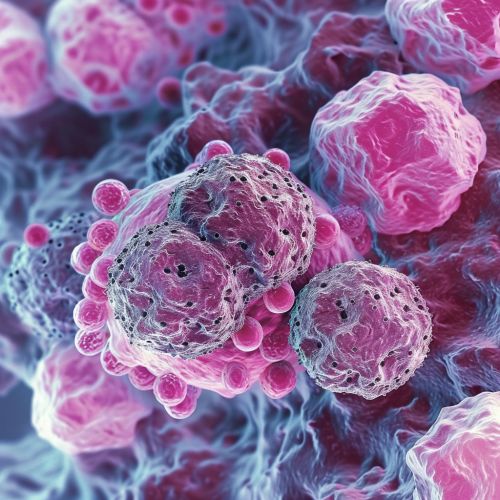Adenocarcinoma
Introduction
Adenocarcinoma is a type of cancer that originates in the glandular cells. These cells are found in different parts of the body, including the lungs, colon, esophagus, and prostate. Adenocarcinoma is the most common form of cancer in some organs, such as the colon and the lungs. It is characterized by the uncontrolled growth and division of glandular cells, leading to the formation of a tumor.


Classification
Adenocarcinomas are classified based on the organ in which they originate. For example, an adenocarcinoma that begins in the colon is referred to as a colon adenocarcinoma, while one that starts in the lungs is known as a lung adenocarcinoma. The classification is important as it helps in determining the course of treatment.
Pathophysiology
Adenocarcinomas, like all cancers, occur due to mutations in the DNA of the cells. These mutations can be caused by various factors, including genetic predisposition, exposure to certain chemicals and substances, and lifestyle factors such as diet and smoking. The mutations lead to the cells growing and dividing uncontrollably, resulting in the formation of a tumor.
Diagnosis
The diagnosis of adenocarcinoma involves a series of tests, including imaging tests, blood tests, and a biopsy. The biopsy, which involves the removal of a small sample of tissue for examination under a microscope, is the most definitive test for adenocarcinoma. The pathologist will examine the sample to determine the type of cells involved and the stage of the cancer.
Treatment
The treatment of adenocarcinoma depends on the stage of the cancer, the patient's overall health, and the organ involved. Treatment options include surgery, radiation therapy, chemotherapy, and targeted therapy. In some cases, a combination of these treatments may be used.
Prognosis
The prognosis for patients with adenocarcinoma varies widely, depending on the organ involved and the stage of the cancer at the time of diagnosis. Early detection and treatment can significantly improve the prognosis.
Epidemiology
Adenocarcinoma is a common type of cancer, accounting for a significant percentage of all cancer cases worldwide. The incidence of adenocarcinoma varies depending on the organ involved, with lung and colon adenocarcinomas being among the most common.
